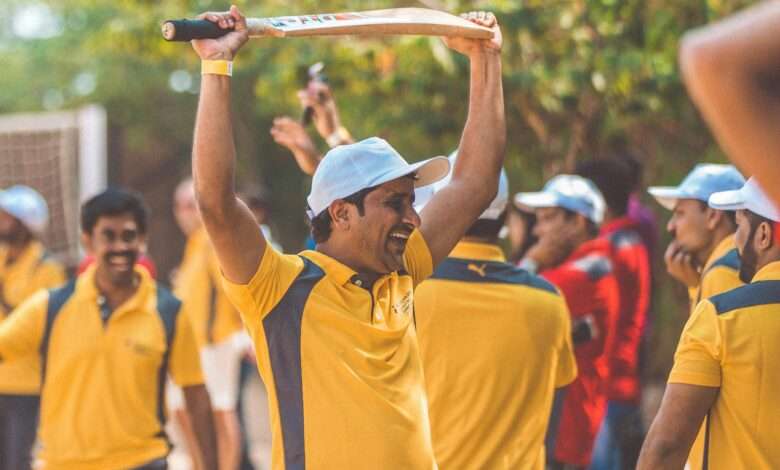Building a Winning Cricket Team : Key Strategies for Success

Building a winning cricket team is no easy feat. Whether it’s for a local league or an international tournament, the process requires a deep understanding of each player’s unique strengths and how to integrate those talents into a cohesive unit. A successful cricket team is built on a balance of technical skill, tactical acumen, mental resilience, and teamwork. In this article, we will explore the essential roles, strategies, and attributes that contribute to it, ensuring you can create a squad that can compete at the highest level.
This review is prepared by V Aiotechnical.com, where we aim to provide insightful, expert-backed content on topics that matter to enthusiasts and professionals alike. In this guide, we’ll break down the critical aspects of team-building that can lead to consistent success on the cricket field.
1. Understanding the Core Components of Building a Winning Cricket Team
Building a winning cricket team is about more than just selecting the best individual players. It’s about understanding how different roles complement each other, working towards a common goal, and ensuring that each player contributes their part to the team’s success.
Key Components:
- Balanced Team Composition: A good team comprises a mix of talented batsmen, bowlers, all-rounders, and fielders. Each role must be filled by players who can perform under pressure.
- Effective Leadership: The captain and leadership team must inspire, strategize, and make critical decisions that affect the game’s outcome.
- Mental Toughness: Teams need players who can handle the pressures of high-stakes matches and remain focused when the game is on the line.
- Team Cohesion: The ability to work together, trust one another, and communicate effectively both on and off the field is essential for success.
By aligning these key components, a cricket team can develop a well-rounded unit that stands a good chance of winning consistently.
2. The Captain: The Heart of a Winning Cricket Team
One of the most important aspects of building a winning cricket team is choosing the right captain. The captain is the team leader who sets the tone, makes on-field decisions, and motivates players to perform at their best.
Key Attributes of a Great Captain: Building a Winning Cricket Team
- Tactical Insight: A captain should have the ability to read the game and make quick decisions that affect the outcome, such as when to change the batting order or bowl a specific bowler.
- Inspirational Leadership: The captain must inspire confidence and trust in all team members, ensuring that every player feels valued and motivated to give their best.
- Calm Under Pressure: During tense moments, the captain must keep a cool head, whether during a close run chase or defending a low total. Their mental resilience sets the example for the rest of the team.
Successful captains like MS Dhoni, Ricky Ponting, and Virat Kohli have demonstrated that leadership is not just about making tactical decisions, but also about creating an environment where players can excel.
3. Building a Balanced Batting Line-Up
Building a Winning Cricket Team, the batting lineup is often the backbone of success. To build a winning cricket team, you need a mix of top-order batsmen, middle-order stabilizers, and explosive finishers.
Roles Within the Batting Line-Up: Building a Winning Cricket Team
- Top-Order Batsmen: These players should have the technical ability to see off the new ball and build a solid foundation. The top-order is critical for setting the platform and building partnerships.
- Middle-Order Batsmen: The middle-order players should be adaptable, able to stabilize the innings when early wickets fall, or accelerate the scoring rate when necessary. In modern cricket, the middle order can often make or break a team’s performance.
- Finishers: In shorter formats like T20, finishers are crucial for taking the game to its final stages. Players who can strike big and score quickly are essential when a team needs to finish strong.
Having players who can contribute in all these roles—like Sachin Tendulkar, David Warner, and AB de Villiers—creates depth in the batting lineup, making the team competitive across all formats of the game.
4. The Role of Bowlers in Creating a Winning Edge
Bowling is equally important in building a winning cricket team, as it is the bowlers who often determine the outcome of the match. A balanced bowling attack, consisting of both pace and spin, provides variety and adaptability.
Types of Bowlers in a Winning Team:
- Pace Bowlers: Fast bowlers create pressure through speed, bounce, and swing. Their ability to break partnerships early is invaluable. A team must have a pace attack that can bowl in tandem, building pressure on the opposition.
- Spin Bowlers: Spinners are essential, especially in the middle overs. Their ability to control the game and take wickets at key moments is vital. Spinners can frustrate batsmen and create opportunities for breakthroughs.
- All-Rounders: While not primarily bowlers, all-rounders like Ben Stokes, Jacques Kallis, and Kapil Dev offer great flexibility. They provide balance to the team, contributing both with the bat and ball.
A successful team needs a variety of bowlers who can adapt to different conditions and formats. Whether on a spinning track or a fast pitch, a well-rounded bowling attack is a critical factor in building a winning cricket team.
5. All-Rounders: The X-Factor in a Winning Team
Building a Winning Cricket Team, All-rounders are often the unsung heroes of a cricket team. Their ability to contribute in both batting and bowling makes them invaluable, offering flexibility and balance to the squad.
Why All-Rounders Matter:
- Balance: A good all-rounder can stabilize an innings with the bat or provide a crucial breakthrough with the ball. They are essential for covering gaps and playing multiple roles as needed.
- Flexibility in Strategy: All-rounders give the captain more options in team selection and tactics. Their dual capabilities make them adaptable to various match situations, whether it’s batting in the middle order or bowling during critical stages.
- Examples: Players like Shakib Al Hasan, Shane Watson, and Richard Hadlee have been key figures for their teams, offering outstanding value with both bat and ball.
All-rounders enhance the depth of the squad and are often the deciding factor between a good team and a great one.
6. The Importance of Fielding in Building a Winning Cricket Team
Fielding is an often-overlooked aspect of cricket, yet it can be a game-changer. A team that excels in the field can save vital runs, take spectacular catches, and build pressure that leads to breakthroughs.
Fielding Requirements:
- Agility: Modern cricket demands fielders who are quick, agile, and capable of stopping boundaries or taking quick catches.
- Team Coordination: Effective communication between fielders is critical, especially in the outfield. Seamless teamwork can prevent runs and create opportunities for run outs.
- Key Players: Teams like South Africa and Australia have set high standards in fielding, with players like Jonty Rhodes and Ricky Ponting becoming legends for their fielding prowess.
A team that performs well in the field often has an edge over its opponents, making fielding an essential aspect of building a winning cricket team.
7. Mental Toughness and Team Cohesion : Building a Winning Cricket Team
The psychological aspect of cricket cannot be overstated. Successful teams are often those that can stay calm in tense situations, overcome adversity, and maintain focus throughout a match.
Mental Strength in Cricket:
- Pressure Situations: Handling pressure, especially in tight run chases or defending low totals, is crucial. The ability to stay composed and execute plans under stress separates good teams from great ones.
- Teamwork: Successful teams foster a culture of trust and communication. Players should understand their roles and support one another, both on and off the field.
- Examples: Teams like India in the 2007 T20 World Cup and Australia during their dominance in the early 2000s demonstrated immense mental resilience.
Building a winning cricket team requires developing mental toughness through team-building activities, communication, and consistent performance under pressure.
Conclusion: Crafting the Winning Formula
In summary, building a winning cricket team involves assembling players who complement each other in key roles—whether it’s through the leadership of the captain, the balance of the batting and bowling attack, or the flexibility of all-rounders. Teams that excel not only have technical expertise but also exhibit mental resilience, strong team cohesion, and an ability to perform under pressure. By recognizing the importance of each role and fostering a culture of trust and communication, any team can set itself on the path to success.
This review is prepared by V Aiotechnical.com, where we aim to offer insightful content for cricket enthusiasts and professionals, helping them understand the critical components of team-building that contribute to success on and off the field.





